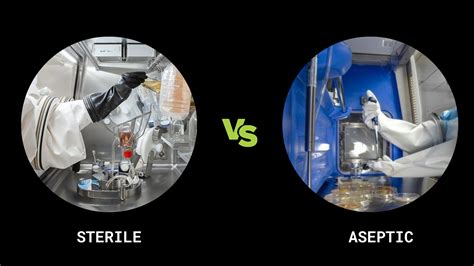Surgical technologists and sterile processing technicians are two crucial professionals in the healthcare industry, particularly in operating rooms and medical facilities. While both roles are essential for maintaining patient safety and preventing infection, they have distinct responsibilities, requirements, and work environments. In this article, we will delve into the differences between surgical tech and sterile processing to help you decide which career path suits you best.
The Role of a Surgical Technologist
A surgical technologist, also known as an operating room technician, is an allied health professional who works closely with surgeons, anesthesiologists, and nurses to ensure that surgical procedures are performed efficiently and effectively. Their primary responsibilities include:
- Preparing operating rooms for surgeries by setting up equipment, instruments, and supplies
- Maintaining asepsis and sterile technique during procedures
- Anticipating and providing necessary instruments and supplies to the surgical team
- Assisting surgeons and other medical professionals with patient care
- Handling and disposing of contaminated materials and equipment
Surgical technologists play a vital role in maintaining a safe and sterile environment, which is crucial for preventing surgical site infections and promoting patient recovery.
The Role of a Sterile Processing Technician
A sterile processing technician, also known as a central service technician, is responsible for cleaning, disinfecting, and sterilizing medical equipment and supplies. Their primary responsibilities include:
- Cleaning and decontaminating medical instruments and equipment
- Sterilizing equipment using various methods, such as autoclaving or gas sterilization
- Packaging and storing sterile supplies and equipment
- Maintaining accurate records of sterilization and inventory
- Ensuring compliance with infection control policies and procedures
Sterile processing technicians play a critical role in preventing the spread of infection and maintaining the integrity of medical equipment and supplies.
Key Differences Between Surgical Tech and Sterile Processing
While both roles are essential for maintaining patient safety, there are several key differences between surgical tech and sterile processing:
- Work Environment: Surgical technologists work in operating rooms, while sterile processing technicians work in central supply or sterile processing departments.
- Responsibilities: Surgical technologists are responsible for preparing operating rooms, maintaining asepsis, and assisting surgeons, while sterile processing technicians focus on cleaning, disinfecting, and sterilizing medical equipment and supplies.
- Requirements: Surgical technologists typically require a post-secondary certificate or associate's degree, while sterile processing technicians may require a certificate or on-the-job training.
- Skills: Surgical technologists need strong communication and interpersonal skills, as they work closely with surgeons and other medical professionals. Sterile processing technicians require attention to detail and organizational skills to ensure accurate record-keeping and inventory management.

Education and Training
Both surgical technologists and sterile processing technicians require specialized education and training. Here are some common programs and certifications:
- Surgical Technologist:
- Post-secondary certificate programs (12-18 months)
- Associate's degree programs (2 years)
- Certification: Certified Surgical Technologist (CST)
- Sterile Processing Technician:
- Certificate programs (6-12 months)
- On-the-job training
- Certification: Certified Registered Central Service Technician (CRCST)
Salary and Job Outlook
Both surgical technologists and sterile processing technicians are in high demand, with job growth rates exceeding the national average. Here are some salary and job outlook statistics:
- Surgical Technologist:
- Median salary: $48,000 - $62,000 per year
- Job growth rate: 3% - 5% per year
- Sterile Processing Technician:
- Median salary: $40,000 - $55,000 per year
- Job growth rate: 4% - 6% per year
Conclusion
In conclusion, while both surgical technologists and sterile processing technicians play critical roles in maintaining patient safety, they have distinct responsibilities, requirements, and work environments. If you are interested in working in operating rooms and assisting surgeons, a career as a surgical technologist may be the best fit. However, if you prefer working behind the scenes, ensuring the sterility of medical equipment and supplies, a career as a sterile processing technician may be the way to go. Ultimately, both careers offer rewarding opportunities for those who are passionate about healthcare and patient safety.





FAQ Section
What is the difference between a surgical technologist and a sterile processing technician?
+A surgical technologist works in operating rooms, preparing equipment and assisting surgeons, while a sterile processing technician works in central supply, cleaning and sterilizing medical equipment and supplies.
What education and training are required for surgical technologists and sterile processing technicians?
+Surgical technologists typically require a post-secondary certificate or associate's degree, while sterile processing technicians may require a certificate or on-the-job training.
What are the salary and job outlook statistics for surgical technologists and sterile processing technicians?
+Both careers offer competitive salaries and job growth rates, with median salaries ranging from $40,000 to $62,000 per year and job growth rates exceeding 3% per year.
